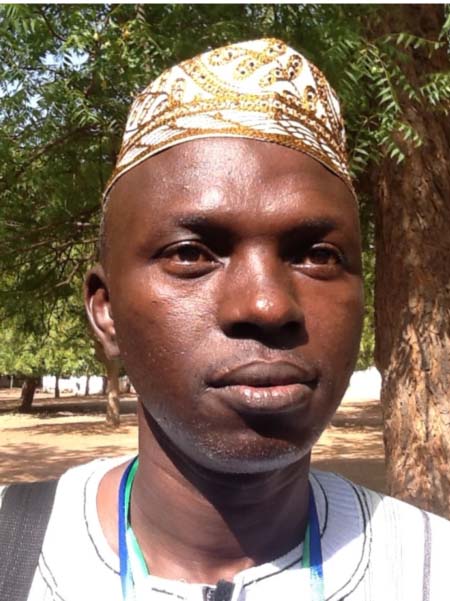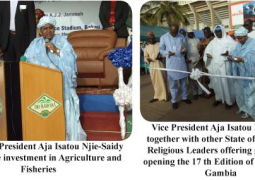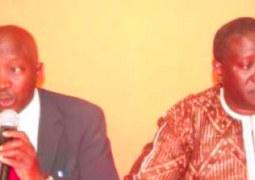
The conference that brought more than 400 farmers’ representatives from across the country, and was organised by National Farmers’ Conference, NFC, and funded by the West African Agricultural Productivity Program, WAAPP.
Speaking at the opening ceremony, the deputy permanent secretary at the ministry of Agriculture, Sheriffo Bojang, said the agricultural sector is the most important sector of the Gambian economy, contributing 32 percent of the gross domestic product, providing employment and income for 80 percentof the population, and accounting for 70 percent of the country’s foreign exchange earnings.
It remains the prime sector to raise income levels, for investments, to improve food security and reduce the level of poverty, he added.
According to DPS Bojang, the agricultural sector is guided by the Agriculture and Natural Resources (ANR) policy and The Gambia National Agriculture Investment Programme (GNAIP) to achieve the development goals of the agriculture sector in The Gambia.
Considering that there was a great need for increased and focused investment in the sector, the GNAIP is an important vehicle to mobilize the much-needed investment to help increase agricultural production, productivity and, most importantly, ensure food and income security and reduce poverty.
The conference was the convergence point of the results of consultations farmers and the ministry have held in the respective regions on the development framework and, most importantly, to reflect on the proceedings of the first farmers conference in 2012 held at Janjanbureh, Bojang continued.
“It will also provide us with an opportunity to affirm our individual and collective commitment to transparent, accountable and inclusive process of dialogue between and among stakeholders in the ANR sector and the determination to raise the performance of the sector to meet the demand in terms of food self-sufficiency.”
The Gambia government is committed to pursue the highest living standards possible for the people of this country, he went on.
“This is quite evident in the number of projects under the ministry of Agriculture brought by the government to lift the level of farmers in terms of food self-sufficiency and income-generation.”
Mindful of the important role of farmers in the realization of this vision, the ministry of Agriculture would work very closely with them in the realization of the objectives of Vision 2016, Bojang further stated.
“I am recommending for this forum to use it to sensitize farmers on the Vision 2016, and recommendations put in place for the realisation of its objectives, specifically farmers in the rice-growing areas of the country,” Bojang told the NFP participants.
Dr Kujejatou Manneh of the FAO said the UN agency played a very critical role in the initiation of the inaugural National Farmer Conference in 2013 for very good reasons. FAO has very high appreciation of the importance of bringing farmers together, she said.
She thanked the farmers and the ministry of Agriculture for organising the conference, and called on the participants to fully engage in the dialogue and to conclude with very a clear vision of how to effectively ensure food and income security for farmers and their families, especially women farmers.
According to her, FAO and government had agreed to work in four areas under the country programme framework, CPF, covering socio-economic development in agriculture and natural resources, which includes agriculture, forestry, fisheries and the environment.
It was aimed to strategically focus and harmonize the activities of FAO, and the social, technical, financial and research partners of the government, taking into account existing UN-wide planning, for efficient and effective intervention in the ANR and associated sectors.
Read Other Articles In Article (Archive)




